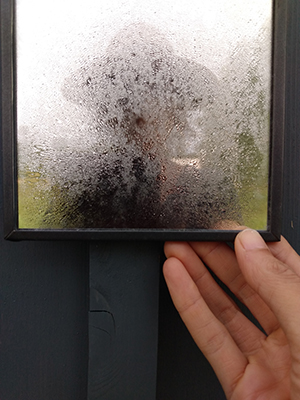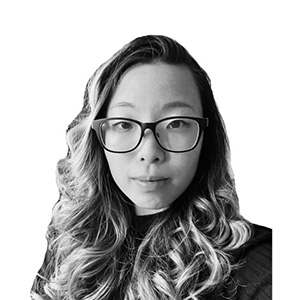At the Edge of That Circle: Joyce Chung interviews Sadiqa de Meijer

Volunteer Joyce Chung talks with Sadiqa de Meijer, whose essay "In the Field" appears in our summer issue #223. They discuss observation as an outsider, an affinity for aquatic insects, and a sense of belonging as a landing place.
Read an excerpt of "In the Field" here.
Sadiqa de Meijer's latest book was alfabet/alphabet, which won the 2021 Governor General's Literary Award for non-fiction. She is currently Poet Laureate of Kingston/Katarokwi.
"In the Field" follows your work as a biology student when you spend a summer venturing out mostly alone into a conservation area to "attempt an inventory of every species present within its bounds." You bring so much life and colour to the species, places, and processes described in your piece. Your attention to detail when writing about your focus of aquatic insects, which are often objects of disgust, is particularly unique. What draws you towards them?
Thank you, Joyce. When I started the fieldwork that is the subject of the piece, I didn’t have an affinity for or particular knowledge of aquatic insects—the subject was assigned to me somewhat arbitrarily. But as I started to look at and read about them, I got intrigued. I think it’s an example of how our engagement changes according to the kind of attention that we bring to something. I was, before that study, probably as inclined as anyone to consider the insects only as appalling things to brush up against while swimming. Being obligated to ask, instead, what their species and behaviours and life cycles were, made them interesting. The essay explores some of the limits of a scientific inquiry, but it’s also true that being part of one channeled my attention in a manner that led to appreciation.
During the fish assessment, the team uses electrofishing to examine the population, and the image of dozens of fish floating on their sides in the pond is extremely striking, at least to me. When writing “In the Field,” what was your most memorable scene?
That was a brief and unforgettable sight. For me, the fragment that became memorable was the one I felt I could write on more expansively, in ways that this essay would not hold. So I am working it out in a poem now—it’s the question of how the possibility of an escaped tiger in that fieldwork setting altered how I saw myself there.
During field season, you comment that apart from Professor Kee, "the white men I worked with that summer, including the entomologist who verified my identifications, often seemed to only acknowledge or address each other[.]" It creates a feeling of being within a community and yet being invisible, without a sense of belonging. Can you talk more about the necessity of community and belonging, whether in your everyday life, the literary community, or otherwise?
I’m of two minds when I consider this. A sense of belonging somewhere is a crucial human experience; I don’t think we can be well without it, and if we’re lucky it forms a consistent landing place in our lives. I’m grateful to feel instances of belonging—with friends or family, and in the neighbourhood, and among other artists, and in the woods, and in reading a book or watching a film, and with a borrowed dog and two cats—especially when they arise unexpectedly. But I also have a good deal of experience with being an outsider, and I recognize that as a position, even when involuntary and unsettling, from which writerly observation becomes possible. While every writer does this differently, I do think we have to look at things with some degree of estrangement in order to describe them past their known and predictable aspects. My place at the edge of that circle of scientists would later allow me to write the essay, and it was balanced that summer by coming home to housemates with whom I felt included.
In your past works (The Poetic Pleasures and Pains We Can Only Express in Dutch and alfabet/alphabet), you’ve explored the ways language shapes our worldviews and the ways it remains with us long after we’ve been first exposed to it. What linguistic research did you do for “In the Field” and what did that process look like?
I didn’t do much linguistic research for this piece—though at the time of the fieldwork, there was learning the Latin names of the creatures: vulpes vulpes, such a striking name for a red fox. What I did look into was the name A’Nowaghi, which is what Kee and his wife Patricia called the conservation area, describing it as an Iroquoian term for “place of the turtles.” I learned that Iroquoian denotes a family of languages. This information could be found on-line, where I am generally meticulous about cross-referencing several sources. I could not locate a record of the phrase a’nowaghi (outside of references to the conservation area itself), but in Kanien’kéha, the word for turtle is a'no:wara. It is relevant to the essay’s inquiry that the Indigenous presence on that land was mentioned only indirectly, and probably in mistaken terms, during the study.

Joyce Chung









